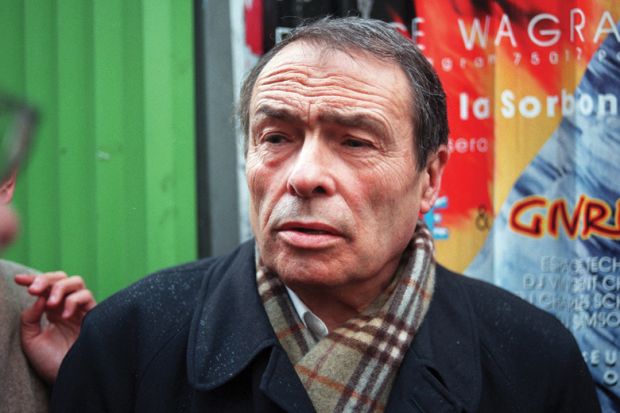It seemed a good idea at the time. As there were several lecturers at the University of York who were interested in Jacques Lacan but found his prose almost unreadable, why not form a study group where we could unravel his revisionist psychoanalysis in a relaxed but erudite manner? Seven of us duly gathered in a corner of the Senior Common Room after lessons and began our collective reading. It was hardly the Vienna Circle. So varied were the interpretations of Lacan’s text that factions developed and the group quickly disintegrated in a cloud of recriminatory incomprehension.
No such fate has befallen the study group set up in 2012 to discuss the work of Pierre Bourdieu, the French critic of neoliberalism, whose massive scholarly output (37 books and more than 400 articles) was constantly, and readably, focused upon the manner in which the social order perpetuates itself by securing an acceptance of existing hierarchies. There is abundant evidence in this fine collection of essays by group members that they have gained hugely from their regular discussions.
It no doubt helps that the group is made up of doctoral students and early career researchers. They are not yet too weighed down by specialist interests or too inhibited by intellectual respect. But what makes the whole volume so very readable, so refreshingly provocative, is that every contributor not only relates Bourdieu’s work to aspects of their own biography and their own political convictions but also uses such over-familiar Bourdieusian concepts as habitus and field, economic, social and cultural capital, in a manner that does full justice to their analytic power. Nobody in these pages employs Bourdieu as a legitimising name-check or is so superficial as to believe that such a complex concept as “cultural capital” can be measured by a questionnaire that asks how many times one has attended an opera in the past 12 months.
This does not mean that this is an uncritical volume. Bourdieu is duly credited with replacing the naive view of the relationship between the individual and society with a version of social life in which people can only perceive the world around them through the set of dispositions and attitudes that they have acquired as a result of their distinctive endowments of capital, whether this capital be economic, social or cultural. But while the authors in this volume readily acknowledge the manner in which this analysis helps to explain the subtleties of class inequality and our ready acceptance of existing social hierarchies, they are anxious not to fall back into determinism. Working-class people may indeed be the victims of stigmatising judgements from those in possession of cultural and economic capital, but this does not rule out their ability to fight back with alternative versions of what is valuable and desirable.
It’s this readiness to wrestle with Bourdieu, to use his concepts as tools for understanding novel situations, that prevents the collection from reading like a Festschrift. Derron Wallace, for example, became aware during his first year at university that despite having a roommate who shared his class heritage, there was no equality of cultural capital: “whiteness functioned as a resource for him, and blackness served as a liability for me”. And this recognition leads Wallace on to a sensitive study, based on interviews with black Caribbean boys and girls in a South London secondary school, of the manner in which “black cultural capital”, the “taste, styles, expressions of urban African American youth”, can “serve as both a symbolic constraint and symbolic resource”.
Much the same intelligent application of Bourdieu can be found in Kirsty Morrin’s demonstration of the manner in which the new Community Academy in her area perpetuated the notion of the inadequacies of the working class with its constant emphasis upon entrepreneurship as the progressive answer to all their problems, as a way of rendering social inequality “largely invisible”. There are also some wonderfully sensitive reflections by Nicola Ingram and Jessie Abrahams on the emotional turmoil that can result from finding that your set of dispositions, your habitus, is out of tune with the field in which you find yourself, when, for example, you are a working-class student occupying a middle-class space.
What perhaps provides this excellent volume with an additional frisson is the background awareness among its contributors that they themselves are now involved in the accumulation of academic capital and that their future lives in higher education will necessarily involve making the types of evaluations and classifications that will perpetuate the divisions and social inequalities against which they so forcefully rail. One can only hope that their current recognition of this paradox prevents them from ever falling into that group of educators that Bourdieu chose to describe dismissively as “lackey intellectuals”.
Laurie Taylor is a fellow of Birkbeck, University of London.
Bourdieu: The Next Generation – The Development of Bourdieu’s Intellectual Heritage in Contemporary UK Sociology
Edited by Jenny Thatcher, Nicola Ingram, Ciaran Burke and Jessie Abrahams
Routledge, 168pp, £90.00 and £34.99
ISBN 9781138910461 and B019H30K3C (Kindle)
Published 18 December 2015
后记
Print headline: Speculators on accumulators




